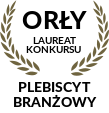
POLISH GRAMMAR: ACCUSATIVE (BIERNIK) – HOW TO GET THE HANG OF IT?
Polish language grammar is largely associated with suffixes – should I be afraid?
For a large group of students, one of the most difficult aspects of Polish grammar is declension, that is – the changing endings of nouns and adjectives. Why does one word have multiple versions? There are languages – for example, the most popular language in the world – English, in which we can use one word in many ways, e.g. ‘coffee’ – I like coffee. I don’t like coffee. I dream about coffee. With a coffee in hand across the world. So in any sentence construction a given word is used in the same form.
In Polish grammar, however, the situation looks different. In Polish the word ‘kawa’ (coffee) – in those same constructions like above in English is like this: ‘Lubię kawę’ (accusative – I like coffee). ‘Nie lubię kawy’ (genitive – I don’t like coffee). ‘Z kawą przez świat’ (instrumental – with a coffee in hand across the world).
This is all the fault of declension, meaning the variation by 7 ‘cases’: Nominative, Genitive, Accusative, Dative, Instrumental, Locative, and Vocative, in Polish: Mianownik, Dopełniacz, Biernik, Celownik, Narzędnik, Miejscownik, and Wołacz.
Polish grammar: Accusative – it isn’t so bad after all!
Today we’ll focus on one of the ‘cases’ – the one we use when saying: I like coffee, I have coffee, coffee please, I drink coffee (lubię kawę, mam kawę, proszę kawę, piję kawę).
We use the accusative form after verbs such as: to have, like, eat, drink, buy, read, know, watch, ask, order, visit, want, prefer, adore (mieć, lubić, jeść, pić, kupować, czytać, znać, oglądać, prosić, zamawiać, zwiedzać, mieć ochotę na, preferować, uwielbiać).
In Polish language grammar, the feminine forms in the accusative take the following forms: Lubię czarną kawę. Mam czerwoną toyotę. Piję zieloną herbatę. Jem zupę pomidorową. (I like black coffee. I have a red Toyota. I drink green tea. I eat tomato soup). So the noun ends in “-Ę” and the adjective with “-Ą”.
In masculine and neutral form, the noun and adjective remain in their infinitive form. For example: ‘duży dom’ (big house – masculine form) – kupuję duży dom (I’m buying a big house); ‘nowy samochód’ (new car – masculine) – on ogląda nowy samochód (he’s looking at a new car); ‘zimne piwo’ (cold beer – neutral form) – oni zamawiają zimne piwo (they’re ordering a cold beer); ‘małe radio’ (small radio – neutral) – mam małe radio (I have a small radio). Ah! It’s not complicated!
But in Polish grammar, the exceptions are the most important…
A small problem arises when our friend says: ‘Mam ochotę na hamburgera!’ (I fancy a hamburger), ‘Preferuję pomidora niż ogórka!’ (I prefer tomato over cucumber)’. How?? Wait a moment! Hamburger, tomato, cucumber are all in the masculine form in Polish! So why don’t we say: ‘Mam ochotę na hamburger’, ‘Preferuję pomidor niż ogórek’?!? We’ll explain! ? In Polish grammar, there is a group of inanimate masculine nouns (things, not people) that take the ending “-a” in the accusative. Most of them are borrowings from other languages.
The exceptions are:
- Food, e.g.:– ‘hamburger’ – Mam ochotę na hamburgera.
- Fruits and vegetables, e.g.: ‘banan’, ‘ananas’, ‘arbuz’ (banana, pineapple, watermelon)– Na śniadanie zawsze jem banana. Uwielbiam ananasa i arbuza. (For breakfast I always eat banana. I adore pineapple and watermelon).
- Car brands, e.g.: ‘mercedes’, ‘ford’ – Mój kolega kupił mercedesa. Marek ma forda. (My friend bought a Mercedes. Marek has a Ford).
- Currencies, e.g.: ‘dolar’, ‘funt’ (dollar, pound)– Mam tylko dolara. Pożycz mi jednego funta. (I only have a dollar. Lend me a pound).
- Dances, e.g.: ‘walc’ (Waltz) – Oni pięknie tańczą walca angielskiego. (They dance the English Waltz beautifully).
- Games, e.g.: ‘squash’, ‘golf’ – Czy lubisz grać w squasha? Często gram w golfa. (Do you like playing squash? I often play golf).
- Substances, e.g. ‘papieros’, ‘szampan’(cigarette, champagne) – Palę papierosa. On pije szampana. (I’m smoking a cigarette. He’s drinking champagne).
Conclusion: Polish language grammar is not that scary, and the Polish language course at KLUB DIALOGU School is a great place to practice.
Accusative isn’t so bad after all ?. Sometimes, we simply have to organise and consolidate our knowledge. The Polish language course at KLUB DIALOGU School is the right place to not only repeat and systematise this knowledge, but also practice and polish the grammatical structures of the Polish language. You can find out more about accusative (biernik) HERE.




